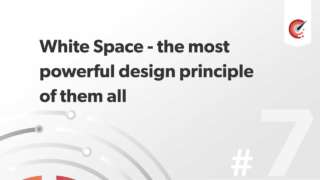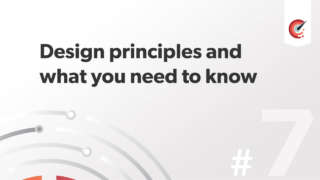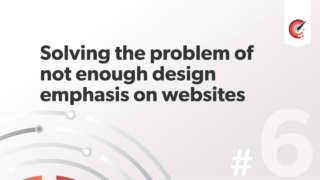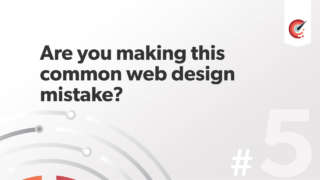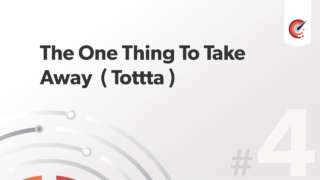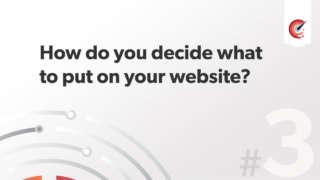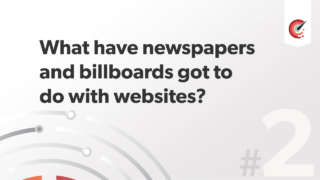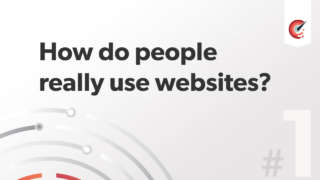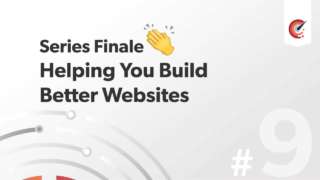
JM: Welcome this is the 5th interview on Web Payload and today we have a great guest it's Dr Karl Blanks from Conversion Rate Experts. Welcome Karl.
KB: Hello John, great to be on your podcast.
JM: Can you tell people about your business and some of your hobbies and what you like to do in your spare time?
KB: My business is Conversion Rate Experts, that's the name of the company and we specialise in one thing, it's improving web pages that is demonstrably better than what the existing pages are. So we analyse a clients site, we look for opportunities, we redesign pages then we put our necks on the line by scientifically split testing to confirm that we have genuinely grown the business. And so as a result our whole business is revolved around what makes web pages and copywriting actually work. Which works, which marketing techniques grow a business and which are just fluff. We've got some nice clients, we have had the privilege to work with some of the worlds most sophisticated companies so Apple, Google, Facebook and Sony and lots of companies that are doing cutting edge of web design.
JM: So what about your hobbies? Are you a workaholic?
KB: I absolutely love conversion rate optimisation and copywriting and any type of writing. I love reading anything to do with people who create stuff, any kind of writing, i enjoy song writing actually. I like listening to songs which have clever well written lyrics as far as hobbies go. They are all based around that kind of thing.
JM: You mentioned some of your clients there, how do you go about attracting them?
KB: This is a funny one but attracting them is the right answer. Our company philosophy is that, anyone can what they are looking for on the web, so we spent most of our time being the company that deserves to have the best clients. So we focus on having the best team, so we pay more than the typical industry amounts for our team because we want the best consultants. We want the best processes, we have spent a lot of time building workflows and making it as efficient as possible and to some extent not spending too much time on marketing ourselves because a company only has a certain amount of energy and money to put into different things, so if in doubt spending it on making our service as good as possible and getting wins for existing clients.
JM: Yes, how many clients, sorry, consultants have you got working?
KB: Oh i don't know off the top of my head, ill need to look into BaseCamp, it's not that particularly big, the whole team is about 25-30 people.
JM: Is a blog part of your strategy for getting these great clients?
KB: In the early days it was, we started the company with a single blog post which was 108 ways to use Google Website Optimiser, that went viral. We wern't actually planning to be a consultancy actually, the next day someone from Google got in touch with us and asked what our plans were and asked us to become one of Googles first consulting partners for Google Website Optimiser, which was their split testing, its changed name now. So that was a pivot as we were looking to produce a training course with the skills that we have got. We had previously worked in house at a company, where we tripled the revenues in one year and were quite excited about we had managed to do with conversion rate. And with being able to apply science into actually growing web businesses, so we knew we had these skills and what would be best use of our skills both in terms of money and doing what we enjoy because we did some affiliate work and quickly realised that we wern't spending our time doing what we love which is conversion. So the consultancy was a business which we loved the idea of running and sticking at.
JM: Great Story
KB: So you asked about the blog so it's not very frequent, we did it to keep an reminder that we are around, although most of our clients come from word of mouth and existing clients, as we have grown, the relative dependence from our marketing activities has decreased. We blog now to a similar frequency to what we have always done. As we have grown our frequency of blogging hasn't grown in proportion because it's a small world so as long as you look after existing clients then everyone knows everyone else in web marketing don't they.
JM: Sure, so you have no comments on your blog, what is the reason for that? Is that a workload thing, you don't want to be editing?
KB: We used to, people talk about focus a lot and a phrase we use a lot, most people think of focus as right then what am i really going to try hard to do,right im going to focus on this, but the reality is focus is about neglect. So focus is not doing things that are very good ideas, often not doing the very good ideas is because you are working on the excellent ideas, I think you could go across the company and find a whole load of things like that. So blog comments were good, we had a healthy for a long time we had a lot of comments for every blog post we put up and we would respond to them and it was nice to have a conversation but during a period when we were under intense pressure and were working, we decided that the blog comments were good but not vital and one of the things that we needed. Across the company you will find a whole load of things that i cringe that we don't do but you can't do everything and focus equals neglect. Twitter is one of the other ones, that can't believe that we don't do Twitter but again you can only do a certain number of things well. So Twitter is one of the things we cringe that we don't do but similarly in a funny kind of way that we are proud that we don't do as it takes a lot of time.
JM: Very addictive too. So lets make the case why would be test in the first place?
KB: The main one is because testing will teach you about what works, testing is the truth. In the world of science you wouldn't dream of taking medicine that hadn't been tested. Or a car or anything that you use has a whole load of scientists working on production lines making sure its optimal and yes web marketing evolves, it's a combination of the scientific side and the creative artistic side but i think still right now when you look at most websites they aren't they are are entirely creative and there is very little rational measurement of what's going on and when you look at the companies that are successful with, they are carry out experiments and testing and tracking, pretty much every hugely successful company, they are doing things in a very quantitative way as well as qualitative.
JM: I remember 5 or 6 years ago i saw something that opened my eyes. A guy did a test and simply changed the words from "Twitter" to "Follow me on Twitter now" and he gained 170%.
KB: Absolutely, the other thing to remember is that if you were a salesman and you could walk into a company and grow their sales by 20%, then usually you would be a hero. So this idea that you could go into a web business and you can make a change and grow the business by 20%, which is a modest improvement, a lot of our clients we have more than doubled the sales of. So having that ability to walk into a company and massively grow the sales and for it to be a permanent fix, its not like you are a sales person driving around having a good month it's a permanent improvement to the business, it's quite addictive and quite exciting then you end up. And without testing a 20% improvement does take a long time. Most people who aren't aware of statistics don;t realise why you have to do split tests to measure something because it doesn't actually, you need to exclude all the other variables, you have to run proper AB split tests so you do know that it was your change that moved things. We had one client where they ran a TV ad on the same day that a page went live, so their conversion rate plummeted because TV ads get lots of junk traffic or unqualified traffic and it was only because we were split testing that we were able to prove that our new page did grow the business because even throughout all of that yes the overall conversion rate for the whole site dropped but our page B out performed page A which was the control the existing one. So it's really powerful.
JM: Powerful stuff. no question. So for someone starting of, what would be the first thing you would test.
KB: The first thing i'd test is to find out what people aren't converting on your site. So whatever it is you want people to do on your site then you need to find out why they are not doing it. Because yes if your current conversion rate is 5% and you want it to be 10% then step one, is why aren't they converting at the moment and why aren't they buying at the moment and people often go to big best practices like i hear that big headlines that have 3 major benefits of the product, that works, or should we make the buttons different or should we reword the call to action, even though there are a whole world of things that often work. The article i mentioned on our site Conversion Rate Experts CRO Tips That's a whole list of things that often work and measurably grow a business but much more important is why some of your visitors aren't converting at the moment and find out what it would take to convert them.We tend to that with survey tools, and a whole range of tools and techniques we have for getting into their heads and why they are not converting and spending money at the moment.
JM: Are you doing external user testing as well?
KB: We do a load of use testing both in house and some remotely and there are services like usertesting.com where you can send it off for some random or maybe not random people to just look through your site and to give feedback on where they got stuck, so you can watch videos of people getting stuck and not understanding what it's all about and not being able to find the call to action and stuff like that.
JM: Yeah one tool i have used is ClickTale is that a tool you guys have experience with? Which is amazing tool.
KB: Yes we have used ClickTale a lot, it's a little like the in store cameras in super markets in which you can actually watch a video of the users mouse movements throughout their visit and watch them moving from page to page. You can also, its very good for form analytics and you can see which fields people are dropping out on and you can also build dynamic checkout funnels and things very easily with Clicktale. So its a very useful tool.
JM: Yeah its a great tool, does changing the button colour really make a different or is it a minimal thing?
KB: Typically its not something you would leap at.It's so easy to do their is no harm. If you want to make your buttons effective and large enough to be noticeable, as far as the colour goes you want it to be distinct enough from the rest of the page that people can spot it, you don't want to be lost in page and more important than those two things are the text on and beneath the button. So for example if you have a button on your site that says register now, then actually the word register isn't what the visitors gets its what they have to give. It's a commitment. it's giving details there are no benefit so if you can reword register now to in terms of what they actually get out of it depending on what your site is "Download your free report now" or "Get started now" or in "10 seconds you have have access to ..." then you will almost definitely get a significant improvement from that change and you can get get great reassurance from just below the button so in terms of risk reduction for example you might want to say "to remind them to cancel at anytime" if it's a SASS service by putting that underneath the button that helps, often mentioning the guarantee or anything that reassures them there is no commitment things like that beneath the button or beneath the call to action.
JM: I notice you are using the word now a lot, is that a secret word?
KB: A secret is a bit strong but it's good. Again there are 2 levels there is the word then their is the function, the underlying function of it, in the same way you would go into a mechanics workshop, there are all these tools on the wall, but each tool has a certain function. It's easy to forget when you are writing words that each phrase or word has a specific function. Its not about it being a magic word but its about the visitor knowing there will be instant return rather than a delay. So it works best when there is a possibility on when it wouldn't be instant so when you say "Download now" They are not going to have to go through a huge rigmarole yo get what you are offering. Actually it's not an over statement to say that hardly anyone who does copywriting that each word is a tool in the mechanics workshop and each word has a specific function, so there are no magic words in the same way there are no magic tools. You would only get out a monkey wrench if you need something that the specific monkey wrench will do. You don't get out a hammer unless you need something that needs hitting. In the same way there are a lot of very effective words but only effective when there is a particular job they need doing.
JB: So i guess there are no secrets you need to test?
KB: Beyond that you need to know what it does and use it in situations when it's an issue so for example negative headlines are good, so for example if you were selling a CRM system and you said download our free report for 7 mistakes when using an CRM system. It's not providing benefits its al about avoiding losses. Negative headlines work really well in B2B. If you were making a million pound decision for your company the main thing going on in the buyers mind is i don't want to make a mistake here or if i do ill lose my job. So if there mindset is not about making blunders then headlines about not making blunders will resonate with them. There is a famous copywriter from years ago called Maxwell Sycime [EDIT from Karl: Robert Collier] and he talked about entering the conversation that is already taking place in the customers mind and so to some extent you have to do that. So that negative headline often works so you could call it a magic phrase or a magic technique only because it does a particular job in a particular situation.
JM: Yeah great stuff, i notice you are hiring, there may be people listening to this and thinking this sounds fantastic, what are you looking for?
KB: A lot of things that make a good conversion marketer. One of the mains we do as a company os find great conversion rate optimisers and if they feel they have these skills we would love to hear from them.The first one is someone who has a track record for growing businesses with conversion. I know that's an obvious one but not many people do. Lots of people write articles about conversion rate but have never run a split test in their lives, so the first one is proving they can do this. If you can do this there is nothing stopping you from getting wins and that's the main one. If someone wants to get good at this then get some wins, even if its on your own site or on someone else's site you can prove that you can do it. Good conversion rate optimisers tend to be sponges when it comes to learning to new techniques as you do need to learn a lot of stuff both about conversion itself and i've given you a few examples of things which tend to work but there are probably hundreds if not thousands of things along those lines, so you need to be a sponge in terms of learning direct response marketing techniques and copywriting techniques and you need to be a sponge on the site you are working on So we look for people who become obsessed in what the client offers about their market place, how they make the product, about what is possible and very quickly knows as much as the client does or sometimes more about the clients market place reads all the users guides, uses the product, uses all the competitors sites all these kind of things and so you end up in a situation when you have huge advantage over the rest of the market place because you know the opportunities and know which techniques are relevant. That's just 2 things actually, there are lots of things but there are the 2 core ones.
JM: It sounds likes a great opportunity, look out for my submission. haha.
KB: Yeah it is, as far as live skills go. At school you get taught to write and weirdly you are not taught in a way that people will understand. At school i was never taught to do user tests of intelligibility tests and get people to point out what they don't understand. And School is about sounding really clever but people cannot understand and if people cannot understand then kudos to you for writing in such a way so bloody opaque that people don't know what you are saying. So that's one thing how to write well and how to write persuasively, there are a whole load of things that are worth knowing as a life skill in terms of putting together sales messages which is often done by framing it terms of their own self interests. There are a huge range of useful skills that convey. Every time you write an email you are persuasively, there are very often terms when you are trying to get collaboration with people and trying to win people over to work with you so it's a very valuable skill.
JM: So last question Karl and its very open, what have you learned from a recent project?
KB: I think one of the recent, because we have been doing conversion for so long so a lot of our insights recently are in terms of how companies, the best companies get things done, because there is a huge difference between most managers who know what they want to do but have an idea of what techniques they want to be using but what they are weak on is is knowing how to prioritise and knowing how to do actually get things implemented in the company. And so most of our interesting findings have been how companies get things done and the most effective ways and accelerating a company by an order of magnitude. So there is a lot of value in value stream mapping and and lean methodology and agility and how to take a company which is dysfunctional and so many companies are, aren't they? Well you work in a company and everyone is busy but nothing is getting done. We have learned a lot in terms to make a company more productive i suppose and unconstipating them and if there is one thing that is really really valuable it's scrum embodies this principle. How can we turn this project into a micro project? How can we turn whatever we are doing today and what can we ship towards the end of the day? So rather than say we have a web redesign which has been going on for 18 months which is so common , is re framing it and chopping this project into small enough bytes, that we can make 1000 tiny steps rather than one and that's really really powerful and it's so hard when you are making that mistake because so many companies are entrenched in that way of working. It takes a lot of constant prompting but if you can think of what you are working on today and which tiny bit of it can get done by the end of the day an iteratively it can make a huge difference to a companies productivity we find.
JM: Yep fantastic stuff Karl. We better end this here that's coming up to 29 minutes, there is a lot of great stuff in there, how do people keep up with you?
KB: The best way if you go to Conversion Rate Experts and it's hyphenated and on our navigation bar there is a button for learning zone where you get free reports, they are really valuable, a couple of them a couple of them show how we built a couple of businesses by twice, more than 2 time, also in doing so you will get onto our email newsletter in which we sent out, not as often as people would like but still very valuable and obviously you can unsubscribe any time, imagine if you couldn't!
JM: Fantastic stuff, thank you very much Karl
KB: Great to speak to you, John.

